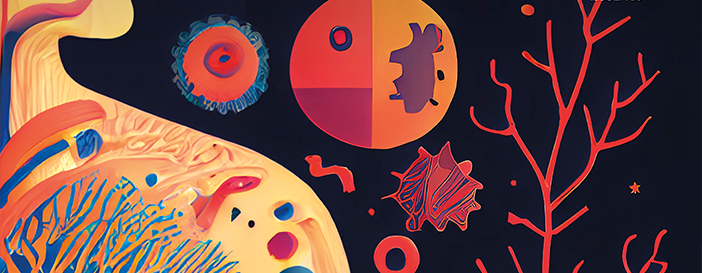Tag: communication
A special bond: How equine-assisted services helps families impacted by domestic abuse

For millennia, humans and horses have enjoyed a special relationship. Recent research shows that working with horses can improve human mental health and wellbeing. Professor Ann Hemingway is part of a multidisciplinary team that has demonstrated that equine-assisted services can improve outcomes for families impacted by domestic abuse and mitigate the conditions that fuel it, and believes that the benefits […]
National Storytelling Week

Throughout history and across cultures around the world, the art of storytelling has been central to the progression and enjoyment of human life, enabling culture, tradition, myth, and legends to be passed down. National Storytelling Week celebrates the tradition of storytelling and aims to inspire a new generation of storytellers to educate, entertain, and engage as their forebears have been […]
Green baize gladiators: Bridge as a mindsport for all

Electronic sports, or esports, have evolved the concept of ‘sport’, especially around the mental acuity needed to play. Professor Samantha Punch at the University of Stirling, together with Dr David Scott at Abertay University, Scotland, see similarities in the card game bridge. They are helping establish a new academic subdiscipline – the sociology of mindsport. In the process, Punch and […]
Read More… from Green baize gladiators: Bridge as a mindsport for all
Satellite internet technology: A double-edged sword

Medical care is increasingly reliant on the internet, thus alternatives, such as satellite internet, should be available in case terrestrial services fail. William Nahm, who is pursuing dual MD/MBA degrees from NYU Grossman School of Medicine and Harvard Business School, USA, emphasises the need for faster and more reliant satellite internet, especially in healthcare. While satellite internet provides a lifeline […]
Read More… from Satellite internet technology: A double-edged sword
Research Outreach – Issue 136: Private messages, browning vegetables, and unnecessary organs

Research Outreach Issue 136 has a wide range of thought-provoking articles that reveal the scope of research in the modern world. Ranging from the genomic editing of eggplant to an ongoing debate about the significance of an organ inside the human nose, the research featured in this month’s publication will surely have something for everyone. We were privileged to speak […]
Research Outreach – Issue 137: Transgressive poets, chronic pain, and self-assembling nanomaterials

Research Outreach Issue 137 continues to showcase the intriguing work being carried out by researchers across all disciplines from the evolution of hair to building a more effective acoustic computer, as well as a study into why women experience more chronic pain than men. We also spoke with Kai Sicks, Secretary General at the German Academic Exchange Service, about the […]
Research Outreach – Issue 138: Trojan horses, capitalist utopias, and a fuzzy future

Our most recent issue of Research Outreach brings together a diverse array of subjects at the forefront of academic research. We showcase the FMsquare Foundation, an organisation that aims to spread the holistic values of ‘fuzzy logic’, as well as tracking the BEST lines for surgeons to follow to reduce post-operative scarring. New approaches to geological modelling may lead to […]
Read More… from Research Outreach – Issue 138: Trojan horses, capitalist utopias, and a fuzzy future
Research Outreach – Issue 135: Surgical simulation, sloppy science, and The Secret of Kells

Research Outreach Issue 135 is brimming with insightful articles on the most recent research currently being undertaken. It covers medieval art and its relationship to a modern animation, innovative surgical simulations, and the danger of sloppy science. We also discuss the use of AI in academic editing with Charlotte Baptista, Product Head at Paperpal, and a new initiative to increase […]
Understanding field scattering in AlGaN/GaN heterostructure field-effect transistors

Field-effect transistors featuring stacked layers of semiconductors are important elements of many electrical devices, especially in wireless communication systems. Through a series of studies, research led by Professor Zhaojun Lin at Shandong University, China, has identified one particular mechanism driving an unavoidable limitation in these devices. By drawing from their new theoretical description of ‘polarisation Coulomb field scattering’, the team […]
Read More… from Understanding field scattering in AlGaN/GaN heterostructure field-effect transistors
Meet the Editorial team: Eva Murtzen

Get to know Eva Murtzen, Senior Editor at Research Publishing International (RPI). She’s been working with Research Outreach since 2020 and hasn’t looked back! Can you start by telling us about your background and how you came to be working with RPI? I moved to Bristol just before the pandemic because my partner had found a position as a postdoc […]